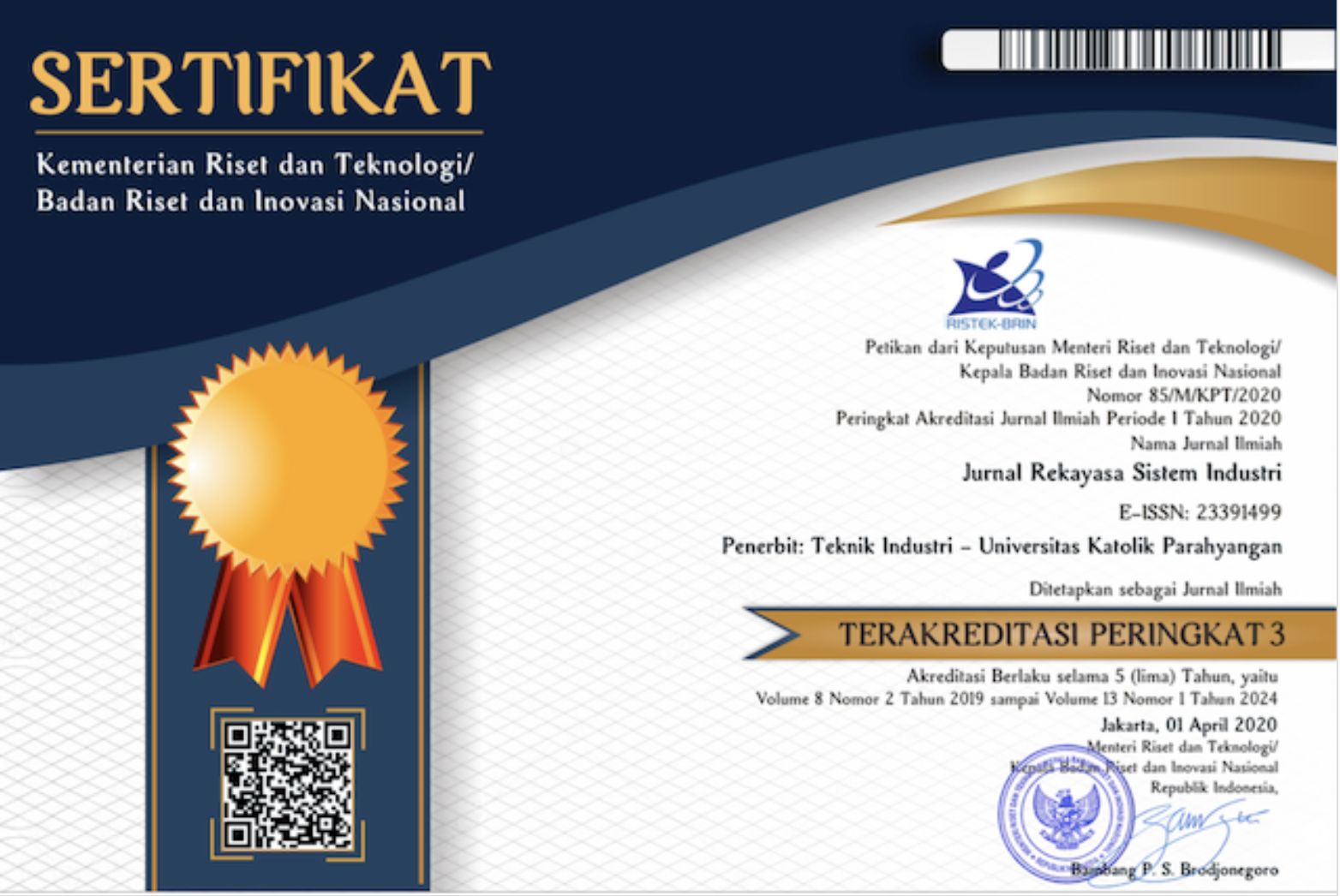Accreditation (SINTA 3)

Jurnal Rekayasa Sistem Industri (JRSI) is a double-blind peer-reviewed journal. This statement clarifies the ethical behavior of all parties involved in the act of publishing an article in this journal, including the Author, the Editor In-Chief, the Editorial Board, the Reviewer and the Publisher (Universitas Katolik Parahyangan). This statement is based on COPE’s Best Practice Guidelines for Journal Editors.
The JRSI editorial board establishes the ethics of scientific publications in the Journal of Industrial Systems Engineering to maintain the quality of papers and avoid plagiarism in the publishing process. This publication ethics applies to writers, editors, best partners, and journal managers. This publication ethics refers to the ethical provisions of scientific publications established by the Indonesian Science Institute Research Council (Majelis Profesor Riset) Number 5 of 2014 concerning the Code of Ethics for Scientific Publications.
Ethical Guideline for Journal Publication
The publication of an article in a peer-reviewed JRSI journal is an essential building block in the development of a coherent and respected network of knowledge. It is a direct reflection of the quality of the work of the authors and the institutions that support them. Peer-reviewed articles support and embody the scientific method. It is, therefore, important to agree upon standards of expected ethical behavior for all parties involved in the act of publishing: the author, the journal editor, the reviewer, the publisher and the society.
Parahyangan Catholic University as publisher of JRSI takes its duties of guardianship over all stages of publishing extremely seriously and we recognize our ethical and other responsibilities. We are committed to ensuring that advertising, reprint or other commercial revenue has no impact or influence on editorial decisions. In addition, the Parahyangan Catholic University and Editorial Board will assist in communications with other journals and/or publishers where this is useful and necessary.
Authors' Ethics
Editor's Ethics
Reviewer Ethics
Journal Manager Ethics
Decision-making; The manager of the journal / editorial board must describe the mission and objectives of the organization, especially those relating to the establishment of journal policies and decisions without any interest.
Accreditation (SINTA 3)
